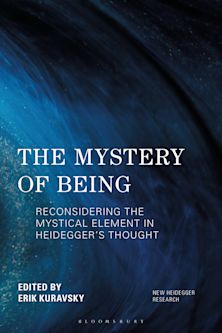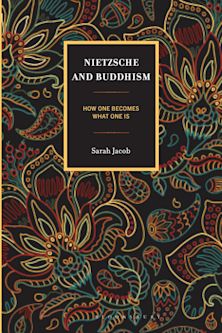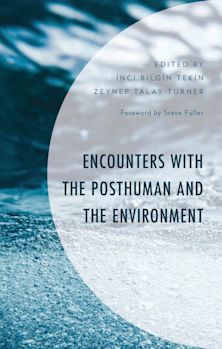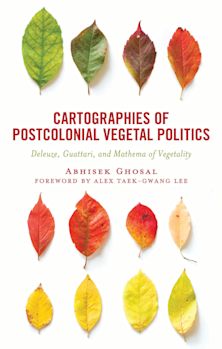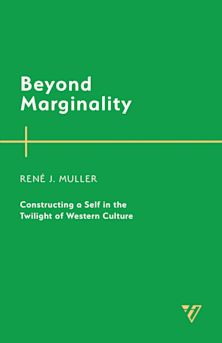- Home
- ACADEMIC
- Philosophy
- Philosophy - Other
- The Princess and the Philosopher
The Princess and the Philosopher
Letters of Elisabeth of the Palatine to RenZ Descartes
The Princess and the Philosopher
Letters of Elisabeth of the Palatine to RenZ Descartes
This product is usually dispatched within 3 days
- Delivery and returns info
-
Free US delivery on orders $35 or over
You must sign in to add this item to your wishlist. Please sign in or create an account
Description
For a number of years, those interested in recovering women's thought have known about Princess Elisabeth, a seventeenth-century correspondent and friend of Descartes whose questions provoked the philosopher to think more seriously about ethics and the passions. Up to now, only a few of her letters have found their way into print. This volume includes translations of all of Elisabeth's extant letters to Descartes, as well as of other materials relevant to understanding her philosophical perspective and her life. Nye has supplemented the translations with a running commentary on the historical, biographical, and intellectual context of the letters.
The letters were during a tumultuous time in European history. A devastating Thirty Years War had ruined Elisabeth's family and devastated their principality, the Palatine. On his part, Descartes was increasingly embroiled in bitter controversies surrounding his work in relatively free-thinking Holland. In her commentary Nye shows how personal experiences energized his and Elisabeth's different views of the relation between mind and body, the existence of God, and the nature of morality.
What Nye evokes, along with the thinking of an extraordinary woman, is an alternative model for philosophy, a nonadversarial form of dialogue that does not pretend to objective theorizing. Such a philosophy depends on mutual respect and trust, on concern for the other's sensibilities and views, on friendship between women and men with a common concern for human life.
Table of Contents
Chapter 2 Prologue: A Terrible Grief
Chapter 3 1 The First Overtures
Chapter 4 2 Body and Soul
Chapter 5 3 The Scent of a Rose
Chapter 6 4 An Initial Disappointment
Chapter 7 5 The Uses of Metaphysics
Chapter 8 6 A Test
Chapter 9 7 The Philosophic Muse
Chapter 10 8 Doctor-Philosopher
Chapter 11 9 A Life Blessed with Happiness
Chapter 12 10 The Burdens of Civility
Chapter 13 11 A Discourse on Prudence
Chapter 14 12 The Consolations of Theology
Chapter 15 13 Traitor to the Cause
Chapter 16 14 A Silence between Friends
Chapter 17 15 Master of Passion
Chapter 18 16 A Certain Languor
Chapter 19 17 Murder in the Streets
Chapter 20 18 The Prince
Chapter 21 19 Magic Powers
Chapter 22 20 An Ungrateful Disciple
Chapter 23 21 An Accusation of Blasphemy
Chapter 24 22 A New Patroness
Chapter 25 23 The Purloined Letters
Chapter 26 24 Affairs of State
Chapter 27 25 On the Advantages of Partition and Death by Beheading
Chapter 28 26 A Royal Summons
Chapter 29 27 Reason in the Service of Sense
Chapter 30 28 In the Land of Ice and Snow
Chapter 31 Epilogue: The Abbess of Herford
Chapter 32 Notes
Chapter 33 Bibliography
Chapter 34 Index
Chapter 35 About the Author
Product details
| Published | Apr 15 1999 |
|---|---|
| Format | Paperback |
| Edition | 1st |
| Extent | 202 |
| ISBN | 9780847692651 |
| Imprint | Rowman & Littlefield Publishers |
| Dimensions | 9 x 6 inches |
| Publisher | Bloomsbury Publishing |
About the contributors
Reviews
-
Nye has put this correspondence in readable form . . . well done.
S. C. Schwarze, Cabrini College, Choice Reviews
-
An intriguing combination of social history, biography, and philosophical commentary. The Princess and the Philosopher provides a lens that enables readers to understand Elisabeth's appreciation of and impact on Descartes' philosophy, framed within the political and cultural context of their time.
Nancy Tuana, Editor, NEWSLETTER ON FEMINISM AND PHILOSOPHY


















